#amulet variants
Explore tagged Tumblr posts
Text
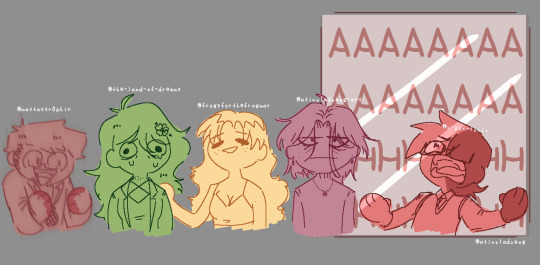
The 963 Variants in a nutshell.
From left to right we have:
Dr Myriad by @mattastr0phic
Dr Clover McCoy by @the-land-of-dreams
Dr Jaylynn Finch by @frogsforthefrogwar
Dr Abirt Kravitz by @atinyladybug-art
Dr Robert Blank by @u-got-lynks
#Alt draws#amulet variants#scp#scp foundation#dr myriad#dr clover mccoy#jaylynn finch#abirt kravitz#robert blank#963 variants
128 notes
·
View notes
Text

the transparent version
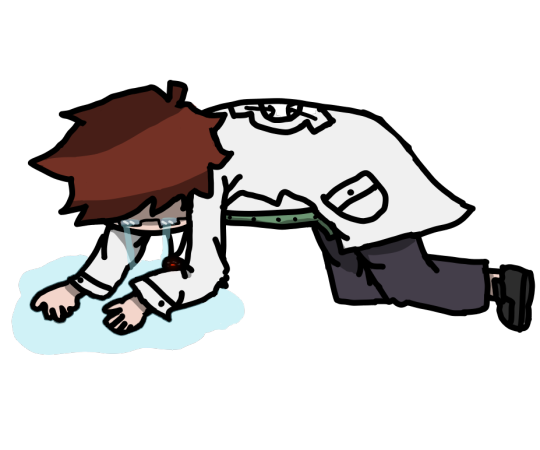
#partially /ref and /nsrs#scp#scp foundation#scp fanart#scp art#secure contain protect#scp 963#scp-963#scp kin#scp fictionkin#dr evermore#jackson evermore#scp jackson evermore#scp dr evermore#dr jackson evermore#scp jack evermore#amulet variants#made this to destress after bad kin feelings#i don’t like thinking too hard about it :(#- 📿
68 notes
·
View notes
Text

jasper beloved blorbo in law <3
36 notes
·
View notes
Text
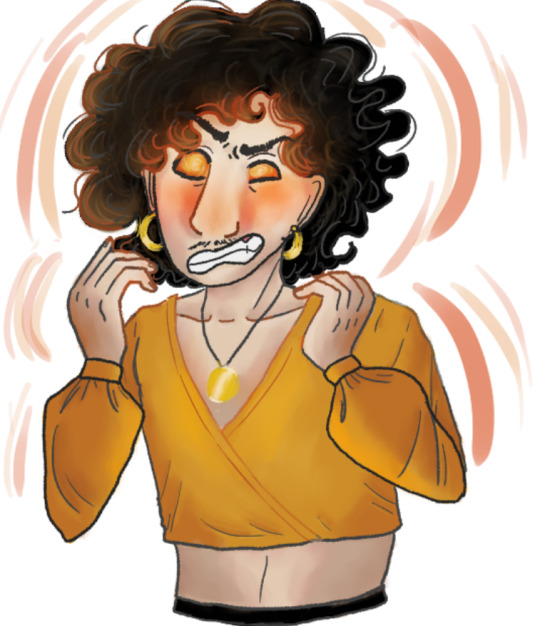
drew my friend @fiveeeee 's 963 rewrite, Dr. Jasper Amos! magician boy is gettin pissy >:-3
#dr jasper amos#dr amos#jasper amos#scp 963#amulet variants#dr bright rewrite#scp#scp foundation#scp fandom#scp fanart#scp art#scp character#scp fan character#scp doctors#digital drawing#digital art#digital artist#digital arwork#digital illustration#illustration#artists on tumblr#shading study#krita art#made with krita#my art#lily's art 2023
29 notes
·
View notes
Text
God the brain rot on the Amulet Variants are real. <- been drawing many amulet variants lately
18 notes
·
View notes
Text
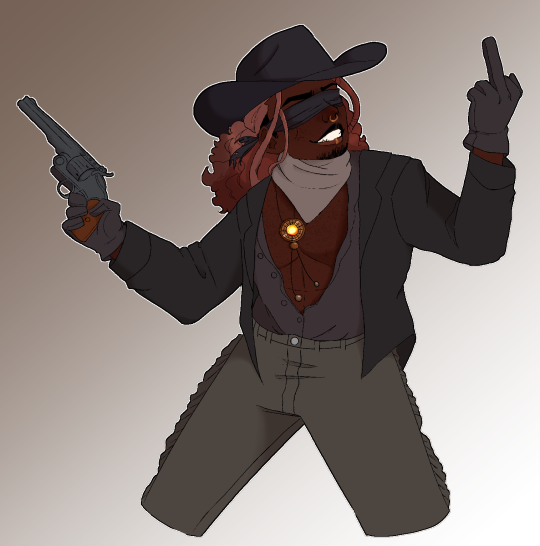
Gun out, Chest out, Middle finger out ---------------------------------- SCP-983 [Old Western Charm] J-████ A. Wolcott // Her/They/Him // Adult TW. Body horror, Eye horror
Physical and Characteristics:
Wolcott is a human (transgender-neutral) born on February 14, 18██.
Shares more similarities with her mother, Evelyn, than the rest of her siblings, even resembling some of her grandparents' features.
Experiences stiff joints or a loss of motor skills during the melting process, often requiring a walking cane, especially during winter.
Struggles with mental health and needs to maintain a one-foot distance from Sadie or wear a protective glove when interacting with her.
Often gets too hot to the point of needing to wear breathable clothes or wear shirts unbuttoned, especially during the summer.
Wolcott has the ability to melt into different binary genders or even a non-binary gender. This would weaken her temporarily; her joints would need time to recool and settle into their new environment, while her system needed to clean itself from any ill or unwanted items inside of her. If a pen were to get trapped in her, for example, it'd melt and give her some unknown illness similar to a fever.
Her eyes have some type of appearance, but it's not always the case. 45 percent of the time, her eyes would appear to be ripped out, and an empty socket would be in their place, or the ooze would drip from her eyes. She wears a blindfold to hide this.
Anomalous Properties:
Her amulet works the same but would keep the former's mental state or their physical form, depending on which one Wolcott picked. After a certain moment of time, her mental state will begin to decay (which is where the former's host mental state comes into play, switching her mental state with theirs), and her body will melt into a glop of molten amber.
Wolcott possesses a unique and dangerous ability: she can bend reality with her imagination and creativity.
This incredible power comes at a great cost. To control her abilities and prevent them from causing havoc, Wolcott wears a shock collar to allow her to snap out of her imagination before it goes south. The collar suppresses her reality-bending abilities but also serves as a safeguard to keep a malevolent entity, known as "It," from taking control. She usually keeps it under her bandana.
Her reality bender can also be created from her nightmares. Wolcott's nightmares are harrowing experiences. She often wakes up coughing up black sludge, a manifestation of her inner turmoil. It'll summon sludge-like creatures from her mouth and nose, even sometimes from her eyes.
Though Wolcott's eyes remain intact, she frequently envisions them ripped out. She can see, and there has been a moment of her eyes showing, but 99% of the time they're covered by bandages or 'ripped out.
14 notes
·
View notes
Text
alternate universe where fresh-out-of-the-shower dante hadn't put on his pants yet when arkham shows up at the beginning of dmc 3 so he goes the rest of the game dressed in nothing but his coat and strawberry print boxers-
#this is absolute crack but. you see the vision#dmc#erurandomness#i'm sorry but also. it would be hilarious#honestly the mental image of a no-coat just boxers variant is also making me laugh#he of course still has his half of the amulet in both variants#dmc3
48 notes
·
View notes
Note
Honestly the only negative thing I have to say about block by block: the amulet is that I’m a bit disappointed that they’re using red suspenders Jesse.
I have nothing against him I just feel like we always see him everywhere (Like in let’s plays, ads for mcsm, and even fan projects)
It would have been nice to give one of the other Jesses a chance to shine (Like how Netflix used green suspenders and red clip Jesse).
Regardless, I’m still excited for it!
~~~
#mcsm#mcsm confessions#minecraft story mode#block by block: the amulet#mod note: i believe they chose this specific jesse variant because he's the most well-known
26 notes
·
View notes
Text

Wyvern reveal !! He’s still similar appearance to my personal Bright design bc… it’s what the brain demanded and I felt if I changed too much it’ll be hell on earth for me (idk how to explain), but uuuhh! Clothes are temporary till I think of something more unique lol! Gonna call the hair extension looking bits “tassels” bc that’s a funny word and I like it- I did take them from an older OC grins. The injury is from falling off a horse similar to what happened to me, bc if I don’t imprint even a little I will explode.
Also not on the quick ref bc I forgot but his eyes can turn to like… slits but not necessarily cat like. A secondary side affect of the amulet. There’s still a lot of things I’m trying to work out, if you have questions on wyvern don’t be hesitant to ask! Also! Unlike other rewrites/amulet wearers he isn’t a site director at all! Still a researcher!
#scp#scp foundation#dr wyvern#dr midas wyvern#dr bright rewrite#963 oc#963 rewrite#amulet holder variant#dr bright#do not tag as shaw#do not tag as any other bright variant#scp fanart#fanart#digital art#cosmohause#cosmohause art#do not use if you apply to my dni#I’m still very pro separation of oc and creator#do what you want forever
38 notes
·
View notes
Text
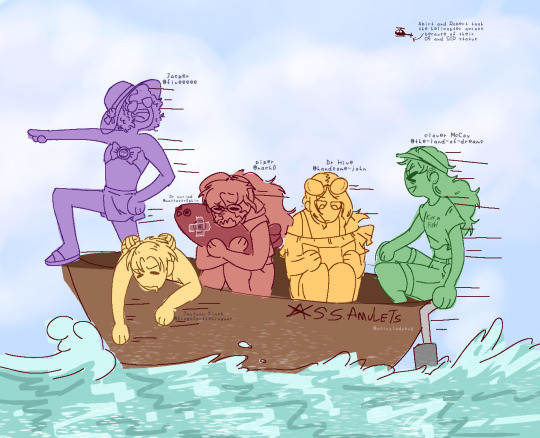
The Amulet Variants on a boat! It be boating day.
From the left to right, we have:
Jasper Amos (purple) by @fiveeeee
Jaylynn Finch (yellow space buns) by @frogsforthefrogwar
Dr Myriad (fish) by @mattastr0phic
Piper ‘Metamorphosis’ Danaus (holding Fish Myr) by @nach0
Dr Hive by @handsome-john
Dr Clover McCoy by @the-land-of-dreams
Mentioned in the helicopter: Robert Blank belongs to @u-got-lynks, Abirt Kravitz belong to @atinyladybug-art
Thang Edit under the cut:

#alt draws#amulet variants#scp#scp foundation#jasper amos#jaylynn finch#dr myriad#Piper ‘Metamorphosis’ Danaus#dr hive#clover mccoy#robert blank#abirt kravitz#amuletverse
68 notes
·
View notes
Text
HIIII SO IT'S BEEN SET UP!!!

Come join my SCP themed (though can be multifandom) server! Kin/System/Irl friendly, and overall pretty cool!
#scp#secure contain protect#scp doctors#scp foundation#amulet variants#scp 963#scp kin#scp fanart#dr evermore#jackson evermore#jack bright#dr bright#scp dr bright#dr kondraki#benjamin kondraki#dr clef#dr gears#scp dr clef#alto clef#dr iceberg#scp fictionkin#scp fictive#scp irl#scp dr iceberg#julian iceberg#dr glass#simon glass#scp dr glass#scp lightbulb#scp art
27 notes
·
View notes
Text
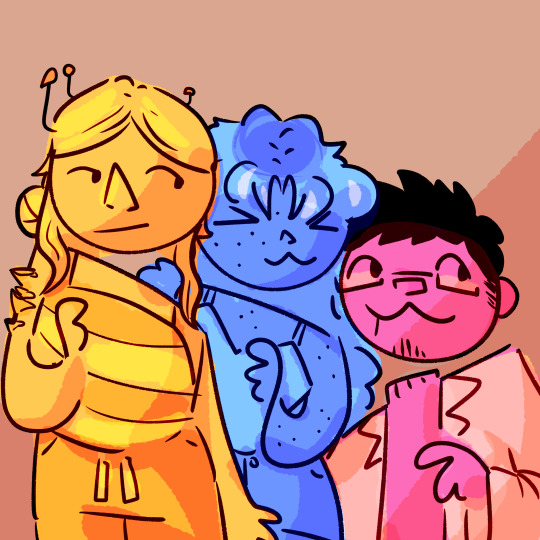
some beloved amulet holders ! trying to draw more,,
dont think ive drawn hive before? they belong to @handsome-john
35 notes
·
View notes
Text
My new headcanoned Troll Jim design

This version of Jim’s troll form is more akin to Gunmar (who I headcanon as a Heartstone Troll, Gumm Gumm is more a general term for “bad trolls” ) with the same ability to absorb energy like how Gunmar absorbed the energy from the Heartstone
Jim form also resonances with the energy used by the amulet (Daylight and Heartstone respectively, the two variants of colored markings displayed)
Other alterations include
Having claws, front facing horns, eyes that glow, and a tail
#azure za raid#tales of arcadia#toa#toa trollhunters#Trollhunters#jim lake jr#james lake jr#troll jim#half troll jim#toa au#redesign#my art#fanart#toa fanart#concept art
102 notes
·
View notes
Note
So, what's the hat situation like in these societies? Are there ceremonial hats? Fashion hats?
In order to give this a detailed and specific answer with lots of examples and lore instead of just saying 'yeah', I'm just defaulting to the Wardi context. Here's a rundown on most of the headgear you've seen so far, and a few new ones.
The exact styles of each type of hat vary by tradition across the region, but there are basic commonalities across the Imperial Wardi cultural sphere.

Conical wide brimmed hats, mostly worn by women
The most common hat style is wide brimmed hats with projecting conical tips. Straw hats in this shape are worn unisex by laborers for sun protection, while decorative fabric based hats of this nature are an aspect of women's traditional dress, usually worn over a veil. Similar hats are sometimes (though less commonly) worn by men- it's a component of women's dress but not generally considered outright effeminate or inappropriate for men to wear.
The shape of the cone and width of the brim varies. The body of the hat is usually patterned, the cone may be wrapped with beads or ribbens, and the tip is often decorated with fur, feathers, or tassels. Some variants also include a built in veil lining the interior.

Men's decorative hats
The distinctly masculine style of decorative hat has no protective function (aside from securing some hairstyles) and is a small, flat topped cap. The northwestern style is unique in typically having a taller, projecting top, but most variants rest close to the scalp.
These hats are usually patterned, and often decorated with khaitsmane, feathers, fabric drapes, tassels, and beads.

Cold weather hats
The climate is overall hot, but does experience a winter in which daytime temperatures can occasionally drop below freezing. Warm headgear usually comes in the form of the headscarf/veil, but there are a few regionally distinct traditional styles of knit woolen cold weather hats.
---
There are a couple established hats that play into dances and festivals:

Dancer's hat
One traditional partnered dance is partly choreographed around the use of a flat topped wide brimmed hat, worn by the female dancer and flapped, tossed, and spun between the two partners. This has tassels around the brim (sometimes long enough to fully obstruct the vision) and brightly patterned concentric circles, curves, and spirals decorating both the interior and exterior, which create striking visual effects in tandem with the movement.

New year's festival dancer with his head bent downwards, displaying the visage of an evil spirit on the top of the hat
A costume worn by dancers at new years festivals includes another flat wide brimmed hat that doubles as a mask. It is strapped tightly around the head of the dancer, who changes between the form of a human and evil spirit by alternating between dancing upright and dancing with the head down. The top of the hat is decorated with grotesque, frightening faces (humans, skulls, predatory animals, monsters), and the dancer is nude under a costume of brightly colored ribbons.
This dance is a part of new years celebrations, and is performed in the towns and cities during the festivities. Its functions are partly apotropaic in nature- by taking the visage of an evil spirit, the dancers frighten off actual malicious spirits and bad luck that threaten to jinx a new year. Dancers will attempt to startle passerby by leaping forward and revealing the frightening face atop their hats (which benefits the 'victim' by scaring off their bad luck as well). Their public nudity (the ribbons don't consistently hide everything) is one of the instances in which a fully exposed body is socially acceptable, as a highly directed exposure of the actual phallus (rather than representations such as amulets) to utilize its protective apotropaic qualities.
In addition to these loftier protective goals, the dancers are a key part of the milieu of entertainment at the festivities. New year's festivals are characterized by a relaxation of some social norms and letting down one's guard, shedding the baggage of a previous year and welcoming in the new, and these dancers epitomize this atmosphere. People tend to find this tradition of being harmlessly startled to be quite fun, with the notable exception being most small children.
---
The other central component of everyday headgear is the veil:

Four styles of veils. Some styles are intermediaries between these, or combinations.
Veils are worn unisex for sun protection while laboring outdoors, and are an expected part of feminine public dress in general. They come in a variety of styles, both in the form of scarfs and fitted sheets with openings for the face and neck. Unisex veils typically fall into the 'protective' and 'hooped' styles, while the 'draped' and 'formal' styles are considered distinctly feminine. Women's veils are typically accompanied with headbands, which secure some styles in place and otherwise serve decorative functions. Most veils are worn loose, the tightly wrapped 'formal' style tends to be reserved for solemn occasions (funerals and certain religious rites) and is more spiritually protective to the wearer.
Conventions of feminine dress and behavior expect women and akoshos to wear veils when outdoors and in general public spaces. They are removed in semi-privacy (indoors with familiar company) and within the home. This is a standard of propriety and feminine behavior and is socially enforced, but not mandated. Similarly to not wearing braids, a woman/akoshos neglecting the public veil will often be interpreted as loose and sloppy, inappropriately masculinized, and/or impoverished or foreign.
Their chief functional purpose is sun protection rather than to cover the skin. By design, they will usually reveal parts of the hair and most of the neck (allowing for display of braids and jewelry). Veiling is not culturally framed as a form of modesty (modesty standards at their core only mandate the covering of genitals, and highly expect the public covering of breasts and buttocks). However, this practice (and the more skin-covering nature of conventional feminine dress in general) additionally seeks to protect the female body from the Gaze (both the evil eye in general, and the gaze of men, which is seen as more effective upon female metaphysical vulnerability).
This practice also has roots in an intense cultural focus on separation between the public and private familial sphere. A woman following standards of public dress (the veil and braided hair most significantly) effectively privileges her male relations (particularly the husband/father) who will typically be the only men that see her body in the private context (note that the private context overlaps with, but is not the same concept as, the sexual context). This delineation in public/private dress and behavior (which applies to men as well, though often in less visible, display based ways) reinforces the boundaries and privileged status of the familial sphere. Women not following clearly delineated public/private dress standards can be interpreted as disrespecting a husband or father's authority over his household and the sanctity of the family as a whole.
The standardized dress of Odonii priestesses includes a 'hooped' type veil (which is likened to the mane of a lion), and a headband tipped with sacred lionsmane (taken from the body of a sacrificed lion, whose corpse has become divine in this rite).
The Odomache wears an entirely unique form of veil that completely obscures the hair, neck, and most facial features (the rest of the body (with the exception of the hands and feet) is also covered). This has separate functions from other forms of veiling- the Odomache is a Face of God Itself incarnated into a human body, and her bodily integrity is tantamount to the integrity of the state, military, and God's connection to the world. She is completely secured from the Gaze, and her body is physically obscured to maintain a sense of separation from bodily humanity and disassociation with her former human identity. Under typical circumstances, only other Odonii (and some attendants) will ever see her face after she is fully incarnated.

The previous Odomache in everyday public vestment, with a two layer veil (one obscuring the head and face, the other draping over the chest in a decorative 'mane')
119 notes
·
View notes
Text

Determining what Gemstone the Amulet of Avalor was originally made of. I’ve come to the decision of Onyx!! Its color variants fit perfectly with the three colors that we see it come in! Plus, it is typically found in Latin America countries, and Avalor is based on Latin America! I can see the amulet being made of Red Onyx!
Let me know if you agree!!
#sofia the first#Sofia#elena of avalor#Elena#amulet#Amulet of Avalor#gemstones#magic#onyx#onyx gemstone#red#purple#pink#theory#for you#just for fun#necklace#Latin#Disney
67 notes
·
View notes
Text



Runes of Yggdrasil Talon Abraxas RUNES Runes are woven into Norse religion and are closely associated with Norse magic (seiðr) and skaldic poetry. The runes were not invented. The old poem Hávamál explains that Odin discovered the runes when he hung himself from the world tree Yggdrasil in order to learn wisdom. He hung on the wind-blown tree for nine nights and days. Just as he was about to die, he found the runes, grabbed them and earned his life.
A more prosaic explanation is that the runes were developed in the firsth century AD, possibly inspired by the Latin alphabet. Although used by all Germanic peoples, most of them, however, are discovered in Scandinavia. Runes have a form such that they are easy to carve into a hard material. Note that one does not write but rather carves a rune.
Runes were carved on weapons, tools, jewellery, amulets, bones, pieces of wood, memorial stones, church walls etc.
Sometimes the runic inscription is read from left to right, sometimes from right to left.
Runes constitute contemporary documentation, but it can be difficult to decipher the runes and there are often several interpretations of an inscription. Den eldre futharken
The elder Futhark
THERE ARE SEVERAL RUNIC ALPHABETS The two main types of runic alphabet are called the elder Futhark and the younger Futhark after the sequence of the first six runic letters. The runes of the Middle Ages are relatively similar to the younger Futhark, but are characterised by pricks that shall differentiate between individual sounds such, for example, as P and D.
In addition, there is a sequence of local variants. Runic script existed simultaneously with the Latin alphabet and was in use up the 1500s. In Dalarne in Sweden, a particular type of runic script was in use up until approximately 1900.
The elder Futhark: 24 characters. These were in use from approx. 100 to 800 AD. The younger Futhark: 16 characters. These were in use from approx. 800 AD to 1100 AD. Medieval runes: 23 runes. Used from approx. 1100 to 1500 AD.
89 notes
·
View notes